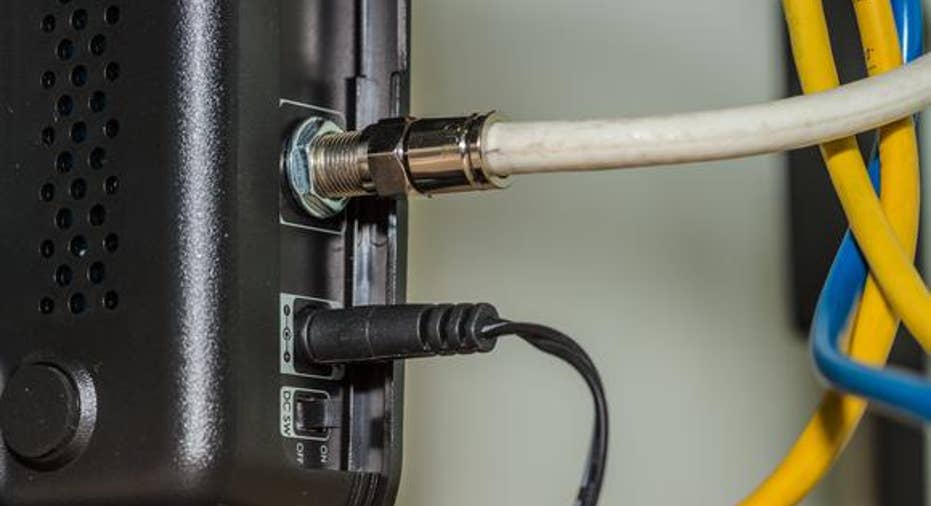AT&T and Verizon's 5G Ambitions Are Cable's Worst Nightmare

When it comes to picking a cable Internet provider, you usually have one (maybe two, if you're lucky) options. Time Warner Cable and Comcast provide Internet to about 71% of new Internet subscribers in America right now. That percentage is expected to stay about the same ifCharter Communications'purchase of Time Warner Cable goes through.
The near-duopoly of cable providers in many regions of the country is a long-standing problem -- and wireless providers may have found a solution.
You may already knowAT&T and Verizon Communications are in the process of testing 5G networks, which will bring much faster and reliable connections than even 4G LTE. But what you may not know is that 5G could also be used as an ultra-fast wireless connection for home broadband, too.
How 5G home broadband worksCellular connections work by sending out long-range signals from very large towers, but 5G home broadband would work a bit differently. AT&T and Verizon are testing out what's called "fixed wireless" in which a home wireless router would receive a signal from small cellular boxes (called small cells) placed much closer to your home than large towers.
These small cells would then beam wireless Internet to the router using what's called multi-user, multiple in, multiple out (MU-MIMO) -- which is just a fancy way of saying that lots of devices could run on it, receiving data and sending data at the same time, all in a very efficient way.
Oh, and it could be crazy fast, too. The average Internet speed in the U.S. is about 31 Mbps, while Verizon's initial 5G tests have reached speeds of up to 10 Gbps (about1,0240 Mbps!). The final 5G home broadband speeds may not reach that high initially, but it's clear they'd be much faster than what most current Internet users have.
Great, when can I get it?Verizon's already started testing 5G technology andAT&T has already filed for approval to start testing 5G fixed wireless in Austin some time this year.
Verizon said that it will start deploying commercial versions of its 5G connections in 2017, but that may be a bit premature. The official 5G standards haven't been set yet, so it's more likely we'll see these services some time around 2020.
Cable won't take this sitting down Time Warner, Comcast, and other cable companies know they might have to soon fight off more competition, and they're already planning for it.
Comcast will likely participate in an upcoming wireless airwaves auction (which companies use to send wireless signals to devices) for a possible wireless Internet option of its own.Some analysts believe Comcast could spend serval billion dollars to obtain wireless airwaves and, according the Wall Street Journal, bid directly against AT&T and Verizon.
For its part, Time Warner has fought the expansion of current interest providers (namely Google Fiber) by dramatically increasing its broadband speeds while charging the same price. The company could certainly do the same if Verizon's and AT&T's 5G home broadband started to catch on with consumers.
There's still a lot we don't know about Verizon and AT&T's fixed wireless plans, but what's clear is that they intend to take on traditional cable Internet in an entirely new way -- which could give home Internet consumers more choices than ever before.
The article AT&T and Verizon's 5G Ambitions Are Cable's Worst Nightmare originally appeared on Fool.com.
Chris Neiger has no position in any stocks mentioned. The Motley Fool owns shares of and recommends Verizon Communications. Try any of our Foolish newsletter services free for 30 days. We Fools may not all hold the same opinions, but we all believe that considering a diverse range of insights makes us better investors. The Motley Fool has a disclosure policy.
Copyright 1995 - 2016 The Motley Fool, LLC. All rights reserved. The Motley Fool has a disclosure policy.



















